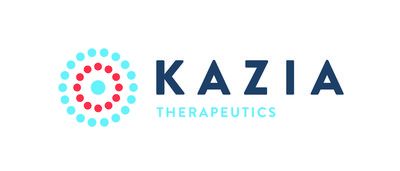US FDA Awards Orphan Drug Designation (ODD) To Paxalisib For Malignant Glioma, Including DIPG

|
SYDNEY, Aug. 24, 2020 /PRNewswire/ -- Kazia Therapeutics Limited (ASX: KZA; NASDAQ: KZIA), an Australian oncology-focused biotechnology company, is pleased to announce that the United States Food and Drug Administration (FDA) has granted Orphan Drug Designation (ODD) to Kazia's paxalisib (formerly GDC-0084) for the treatment of malignant glioma, which includes Diffuse Intrinsic Pontine Glioma (DIPG), a rare and highly aggressive childhood brain cancer.
Key Points
- Orphan Drug Designation (ODD) is a special status accorded to drugs which are considered promising potential treatments for rare ('orphan') diseases, generally defined as those which affect less than 200,000 cases per annum in the United States
- ODD can provide drug developers with up to seven years of Orphan Drug Exclusivity (ODE), extending the effective life of a commercial product. It also provides opportunities for grant funding, protocol assistance, and financial benefits, such as a waiver of New Drug Application fees, and tax credits
- Receipt of ODD follows award of Rare Pediatric Disease Designation (RPDD) for DIPG on 7 August 2020
Kazia CEO, Dr James Garner, commented, "Taken together, RPDD and ODD provide a powerful suite of incentives, opportunities, and protections for the development of paxalisib in DIPG. We look forward to seeing initial data from the ongoing phase I study in DIPG at St Jude Children's Research Hospital during the second half of calendar 2020. In parallel, we are working closely with collaborators, advisors, and researchers to determine the best path forward for paxalisib in this devastating disease."
He added, "This award of ODD concludes a program of regulatory optimisation that Kazia has initiated for paxalisib over the past six months. As we orient paxalisib towards commercialization, these special designations from FDA will allow us to move forward in the swiftest and most effective way possible."
Orphan Drug Designation
ODD exists to recognise the development of a drug for a rare disease, which may affect adults or children. ODD provides an additional period of 7.5 years data exclusivity (for a paediatric disease), which allows companies to better defend their products against competition. It also results in a waiver by FDA of fees for a marketing application, under the Prescription Drug User Fees Act (PDUFA fees), which are just under US$ 3 million in FY2020. In addition, drugs with ODD may be eligible for orphan grants by FDA.
Kazia previously received ODD for paxalisib in glioblastoma in February 2018.
Summary of Paxalisib Regulatory Status
Glioblastoma Most common and most aggressive adult brain cancer |
DIPG Highly aggressive childhood brain cancer |
|
Orphan Designation |
February 2018 |
August 2020 |
Fast Track Designation |
August 2020 |
|
Rare Pediatric Disease Designation |
n/a |
August 2020 |
Next Steps
Kazia expects to present further data from its ongoing phase II study of paxalisib in glioblastoma at the Society for Neuro-Oncology (SNO) Annual Meeting in November 2020.
Initial efficacy data from the ongoing phase I study of paxalisib in DIPG at St Jude Children's Research Hospital is expected during 2H CY2020. Precise timing remains uncertain due to pandemic-related disruption in conference schedules, but Kazia expects to provide an update to investors at the earliest opportunity.
Paxalisib has been selected to join the international GBM AGILE pivotal study in glioblastoma, and recruitment is expected to begin in 2H CY2020.
Photo - https://photos.prnasia.com/prnh/20171120/1996749-1LOGO?lang=0[1]
References
- ^ https://photos.prnasia.com/prnh/20171120/1996749-1LOGO?lang=0 (photos.prnasia.com)
Read more https://www.prnasia.com/story/archive/3102015_AE02015_0














